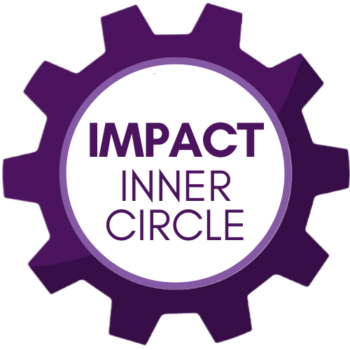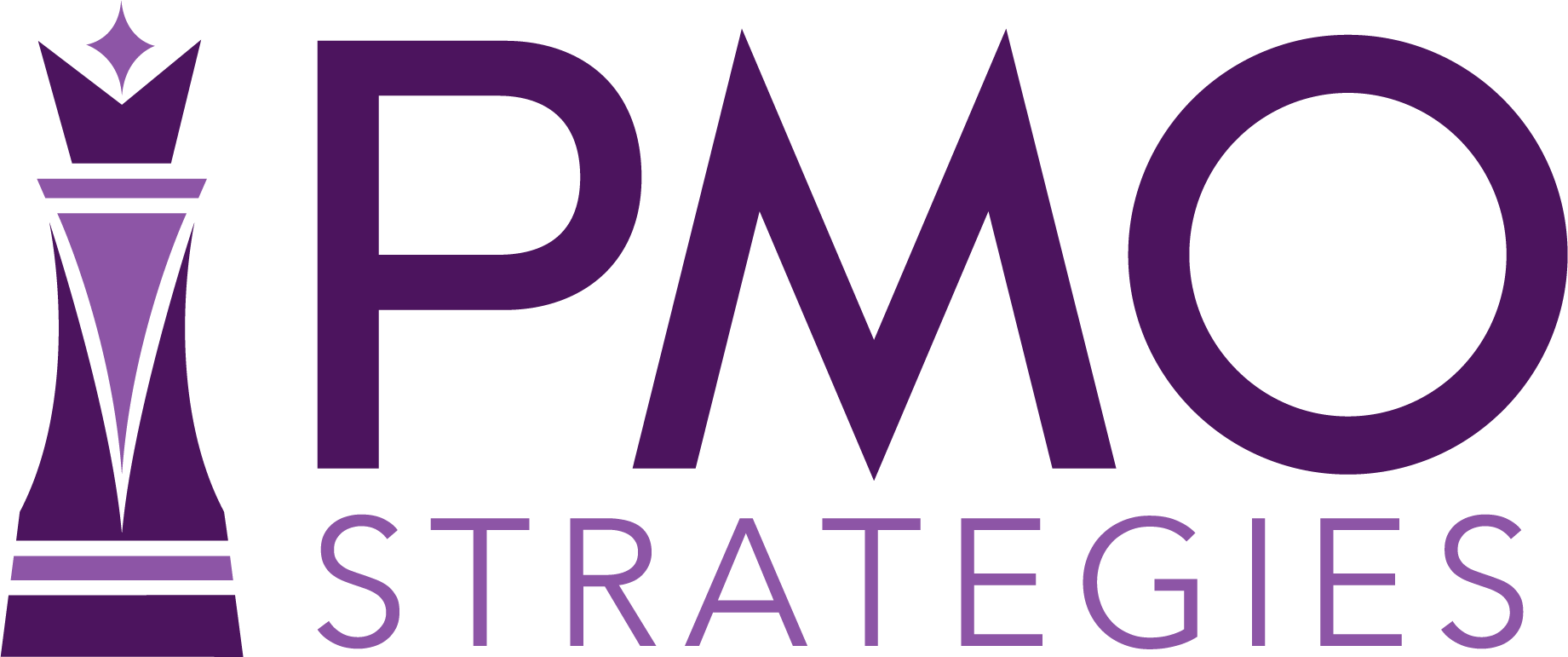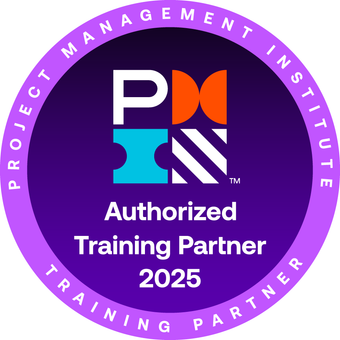I did an interview for some friends with the Association for Project Management in the UK and I wanted to share this interview with you all! Here you go!
Welcome to the Association for Project Management PMO SIG web interview. Today we have Laura Barnard, the CEO of PMO Strategies.
- Please tell us a bit about yourself.
Laura is the Founder and CEO of PMO Strategies, and has spent more than 20 years creating impactful and sustainable change for a broad range of organizations, from non-profits to global financial institutions. She combines experience in the PMO and Change Management space with her passion for helping people get things done to transform how organizations realize business strategy.
Laura believes that project managers are uniquely positioned to assist non-profit organizations in having a greater impact in the local community. She is the Founder and President of Project Management for Change, a non-profit organization whose mission is to raise the profile of the project management profession by showing the value of project management across the globe as the most effective enabling resource for delivering sustainable change in the non-profit sector. She is the Executive Director of the Project Management Day of Service (PMDoS)®, the record-setting signature event of Project Management for Change that brings together hundreds of project managers to scope and launch projects for non-profit organizations.
- How did you get into working in PMO’s; and what attracted you to it?
Interestingly, when I was in high school I knew I wanted to be in a field where I could help people solve problems and I was good at maths and sciences, so I decided to study Computer Science at Virginia Tech. I really enjoyed it as I loved the creative process and thrived on finding better ways to do things. When I graduated, I quickly started working on projects and enjoyed being the communication link between the technical and business teams, which allowed me facilitate meetings and progress. I discovered that project management and the PMO was an ideal fit for me and worked through to building my first PMO about 18 years ago.
3 years ago I started my own company, PMO Strategies, which provides training, coaching, advisory and consulting services to various organisations. I specialise in advising executives on how to leverage the PMO model to facilitate their change journey and enabling resources to help plan and execute enterprise strategy.
In addition, I also now run a non-profit organisation Project Management for Change, which has a PMO of up to 70 volunteers all helping to put together large events bringing together hundreds of non-profit organisations in the DC area to help them make a difference in our local communities.
- How long has your PMO been in place?
Project Management for Change is a non-profit organisation that started in 2014 as a PMO comprised of an enthusiastic band of volunteer project managers and PMO professionals around the DC area that wanted to make a positive impact in our local community using their project management skills.
- What kind of PMO are you currently working in, and what is the size and value of the portfolio managed by the team?
I’m a strong believer that project success should be measured from the impact of the outcomes. The difference we make in the community through our service is where the real value is added.
The Project Management for Change PMO delivers an annual event helping hundreds of local non-profit organisations. The value of the events is measured in the contribution back to these non-profits and the impact they have on the communities they serve. It takes about $200k in terms of project management effort on the day of the event to help these non-profits launch their projects. Then, once these non-profits deliver these projects, the impact to the community is an average of a 5 times multiplier of the pro bono services effort provided by our project managers. That’s at least a million dollar impact to our communities delivered in a single day. As we multiply these events across the states, this will continue to grow exponentially.
Imagine, that kind of impact to better your community, all using your project management skills.
We measure impact and outcomes in our work. My article called “EVM is not enough” discusses this. EVM is a measure of project performance, but EVM doesn’t address whether or not the value that you invested/intended to create was actually achieved as an end result. We need to teach our project managers the value of the outcome is most important and not just the triple constraint and EVM.
- It is widely accepted that PMO’s are created to respond to a particular issue/opportunity. What was the trigger for your PMO to be set up and what approach was used to establish it?
A former president of the DC chapter of the PMI, J. Kendall Lott, came up with the idea of setting up a non-profit voluntary organisation of project managers and PMO professionals to deliver a large-scale event to the non-profit community and to promote the project management profession. I was immediately drawn to it.
When we discussed the best approach to finding and leveraging the volunteers as a team to deliver on such an event, the PMO was the natural fit. We built a PMO organisation based around volunteers to plan a 1-day annual event, and coined the phrase “The impossible PMO” as everyone kept saying it was impossible to pull off something like this with 100% volunteers and in our profession, but our aim was to make the impossible possible. We knew the Project Management community had more to offer.
- What is the size of the PMO team and what is the makeup of the team?
The first year it was very simple and focused on all of the operational areas such as event planning, marketing, fundraising, IT, and over time the model evolved to be more sophisticated as we are now gearing up to deliver several programmes each year. The PMO remains strategic in its approach and uses a group of portfolio managers using 1-page status reports to deliver each programme, including the big Project Management for Change PMDoS event in the DC area, a support team to help project management organizations around the world setup their own PMDoS events that uses our PMDoS Playbook, and coaching and mentoring non-profit organisations in PM methods.
- How do you manage the competency of your PMO team?
All Project Management for Change volunteers are given full access to training materials from PMO Strategies including several training programmes such as: How to Train Your Sponsor; The One Page Executive Dashboard (tell them what they need to know and stop); Change Management Simplified; Beyond the Business Driven PMO; and the Impact Engine (turning the PMO into a ROI generator to add value to your organisation). Volunteers can continue to grow and develop through CPD from these training programmes, which enables our volunteers to learn in a safe environment and grow new skills where they feel cared for and supported.
- What would you say makes your PMO interesting, different and/or successful?

If you like this, join us in the IMPACT Inner Circle membership program!
Everything…
What makes it different and interesting is that our volunteers are here by choice. Our volunteers are engaged because they want to be, not because they have to be. They want to use the power of project management to change the world, and help non-profit organisations using their project management skills to make a difference locally and globally. The concept for this event and the way we give back to the community allows project managers to use their unique and hard-earned skills to further the missions of non-profit organisations. They can’t do this anywhere else, not on this scale.
- Can you give us some examples of the range of services you provide?
Everything; from the typical PMO services such as standardised templates and process for running projects; to providing an entire playbook on how to set-up a PMDoS PMO from start to finish; providing training and coaching to project managers on how to engage this community in a meaningful way; providing training and coaching to the non-profit community; portfolio management; and providing pro bono consultancy services to the non-profit community.
- Does your PMO have the power to stop initiatives, or have the trusted ear of senior executives, to ensure failing initiatives are stopped?
A lot of PMOs fail because they do not have the trusted ear of executives. They have no power. It is critical that the most senior leadership of an organization is directly accessible for the PMO. I have emphasized the importance of this in every PMO I’ve created or helped others create and it’s certainly the way we work here. It’s crucial to have a high level executive such as the CEO or COO as the Sponsor of the PMO at the highest level.
The PMO reports to me as the CEO of the company and as its sponsor, and I report to the board. This means we all are connected to and understand the power of what we are trying to accomplish, and they understand what we are trying to achieve. We are all in it together.
- As value is in the eye of the beholder, what are the key ‘perceived’ benefits that your PMO brings to your organisation?
We make it happen! We are the team that gets things done. The PMO Strategies slogan is ‘Get. It. Done’. This is what PMOs are all about – taking strategy, helping to further clarify that strategy, and then delivering that strategy with high-impact results.
The Project Management for Change organisation delivers our strategy of raising the profile of the Project Management profession, and making a positive contribution and impact to non-profit organisations and the small business community.
- What would you say are the main challenges faced by your PMO?
The initial challenge was establishing credibility as a new voluntary organisation, however we had belief in what we were trying to do, and by setting reasonable expectations we were able to grow and succeed. Deliver and be successful, and you will overcome any resistance.
Our next and most pressing challenge is that Project Management for Change is a 100% volunteer run organisation. The main challenge is being able to maintain engagement for our volunteers as they all have busy day jobs, and lives. We combat this by having a constant recruiting effort going and making sure our human resources and leadership teams are engaging volunteers to make sure the work they are doing is meaningful.
- Given the repeating theme that PMO’s only last up to 4 years, why do you think PMO’s are still failing?
There’s a long list of reasons why PMOs don’t last, but I would say the biggest one is taking on too much and focusing too much on the wrong things. If you do this your PMO will be extinct before it has had the chance to make a real impact. It’s about understanding the needs and delivering what you say you are going to deliver. The PMO should deliver value, impact and ROI for your business, not just processes. PMOs should help organisations by truly understanding executive needs and delivering against them, helping them to make the right decisions by providing reliable information and to take on the right projects, and be brave enough to stop failing projects.
I just wrote an article called “Don’t boil the ocean (when creating a PMO)” which provides more on this topic, available from the IMPACT by Laura website at https://pmostrategies.com/blog
- What advice do you have for PMO’s of all kinds to remain current?
Pay attention to successful PMOs. There is a shift happening. PMOs that are successful are paying attention. I have a ton of free articles and ebooks on these topics available on the PMO Strategies website. What I find most interesting is the response from the executives outside of the PMO space. They are thanking me for writing these articles and sharing the leadership voice with the PMO community. They send these articles back to their PMO leaders as this is what they need. I strongly believe that the PMO is the answer, and so do many of these executive, but the PMO of the future needs to adapt, be agile and deliver against the needs of the business.
- In your view, what distinguishes high-performance PMO’s from those that fail to succeed?
High performing PMOs focus on outcomes and impact, and driving return on investment for the organisation. They are flexible, and focus on delivering, helping, and improving the lives of the teams and the stakeholders they support, before focusing too much on templates and rigorous process. They have the ability to stop a project when we see that a project is not going to be able to deliver what was intended.
As PMO leaders and project managers, we need to be flexible and agile in how we go about delivering the results for an organisation, so that we can start showing impact sooner. Doing this, we have a huge opportunity to change the brand of a PMO into something that people really want to be a part of and will be proud to call their home.
- What do you see to be the PMO of the future?
Sadly, what I have seen are executives who are so afraid to use the phrase PMO, that they say “don’t call it a PMO; call it something else.” I think that’s because so many executives don’t want that brand of the heavy process, administrative, overhead function, that doesn’t deliver the results. Changing the title can create the hope that it will operate differently, but without changing the behaviour and the focus, they don’t get very far. It’s not about what you call it. It’s about what it does. Deliver impact and build credibility as quickly as possible. Solve problems for the business leaders. Get things done.
PMOs need to become more agile and demonstrate value quicker, leading to changing the brand of the PMO to make it appealing and attract new talent.
PMOs of the future are high impact ROI driven organisations that get it done for the business.
Thanks for taking the time to read this article.
Click here to receive these blog posts right to your inbox.
Fill out our one-minute survey if you have topics you would like read more about.
I welcome your feedback and insights. Please leave a comment below.
See you online!
Warmly,










[…] Establishing a PMO department: An approach to PMO (Program Management Office) My Interview With APM – PMO. […]